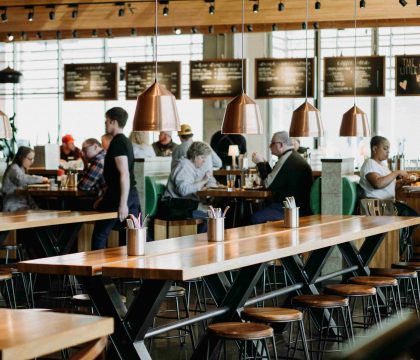In the restaurant industry, web accessibility enables individuals with disabilities to make reservations, view restaurant menus, and find restaurant locations. A sizeable number of ADA lawsuits have been filled over the past year, and a majority of them were against the food and hospitality services industries, including a few top food chains and restaurants. Thus, ensuring restaurant website accessibility keeps your business compliant while you reach all customers with equal reach. If you want to maintain a strong and secure web presence for your restaurant, then understanding and being compliant with ADA is a must.
Functionality Checklist for Restaurant Website Accessibility
People use a restaurant’s website for more than looking at its menu or booking a reservation. Some of the functionality barriers an inaccessible restaurant website present include:
- Reservation booking
- Clear menu and featured items
- Special deals
- Online ordering
- Email subscription for deals and updates
- Location finder
- Contact info
- Images
- Videos
Restaurant Website ADA Compliance Lawsuits
Restaurants provide more than just food and drink services to the public. A restaurant’s website should host plenty of valuable, quality content such menu items, photos (of food, drink, specials, and interior), reservation bookings, videos as well as any forms to capture contact information for future deals through email promotion.
Restaurant websites can contain thousands of access barriers that make it difficult if not impossible for customers who are blind and visually impaired to use its website. This excludes customers with a disability from the full and equal participation in the growing Internet economy that is an increasingly common part of daily living.
Under the Americans with Disabilities Act, businesses cannot deny persons with a disability equal access to goods and services provided by the business as they would to persons without a disability. Customers can bring a civil rights action, or file a federal lawsuit against a restaurant for their failure to design, construct, maintain, and operate their websites to be fully accessible to and independently usable.
A 2010 U.S. Census Bureau report approximated 8.1 million people in the United States are visually impaired, including 2 million who are blind, and is expected to have increased since. A customer that is visually impaired or legally blind requires the assistance of screenreading software to read website’s content. It would be challenging for a person using a screenreader to navigate ordering online or making a reservation if forms trap a customer’s keyboard navigator. Or if form fields are not titled so a customer would not know if they are filling out their First name for order or their phone number.
Heavily trafficked restaurant websites use readily available accessible technologies such as alternative text, accessible forms, descriptive links, resizable text and limited use of tables and JavaScript. When a business decides to use an exclusively visual interface, persons who are blind or visually impaired need to rely on sighted companions to assist them. The lack of an accessible website means that blind people are excluded from the rapidly expanding self-service food industry. A business failing to make their restaurant website accessible to blind persons violates basic equal access requirements under both state and federal law.
Check out these U.S. Restaurant Web Accessibility Lawsuits:
- Domino’s Served Class Action for Inaccessible Website and Application
- Caffebene Inc Website Bound by ADA
- Corner Table Restaurants Website and Mobile Application Not Fully Accessible to Blind or Visually Impaired Patrons
- Conner v Pop Bar, LLC – Inaccessible Website Design, Construction, Maintenance and Operation
- Class Action Against Ginza Onodera New York Inc, Violation of ADA Rights
- Not so Hospitable, Bread and Salt Hospitality Website and Application Inaccessible
- The Oyster House Served Class Action in Violation of ADA Web Accessibility
